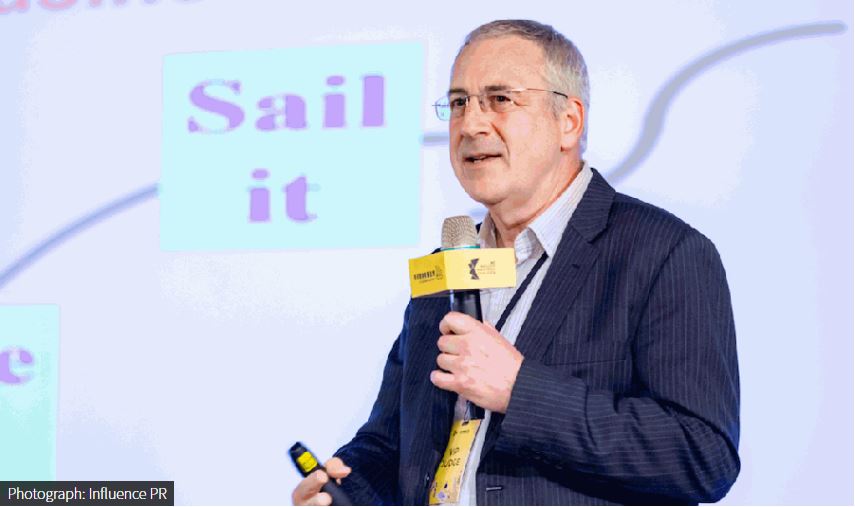Who are the entrepreneurs we will be celebrating in the future? A talk with MIT Professor Charlie Fine

Earlier this month, MIT Inclusive Innovation Challenge (IIC) have organized its Asia selection in Kaohsiung and announced four out of twelve startups as regional winners who soon proceed to MIT to vie for the four final cash prizes, with which they will be able to fulfill their ideas and create more economic opportunities for moderate and low income earners.
On the same day, Business Next sat down with Professor Charlie Fine, one of the selection panel members, to discuss the entrepreneurial opportunities in Asia and how they are explored by local startups, including the twelve teams who has made it to the regional selection. As the President of Asia School of Business (ASB) in Kuala Lumpur, an MBA program institute in collaboration with MIT Sloan, he also shared his views on how Taiwan can possibly collaborate with Southeast Asian countries after building more connections.
Entrepreneurship necessary for Asia and the world
In Asia, the rapid economic growth has opened up numerous spaces for entrepreneurs to tap into the market.
Professor Fine said he sees a great number of “visionary and ambitious people” in the region such as Anthony Tan, co-founder of Grab, as well.
Founded in 2012, the ride-hailing giant is the first homegrown unicorn in Southeast Asia. “My sense is that there are going to be dozens of Anthony Tans and unicorns,” he said.
The startup, through providing alternative means of transportation, offers better mobility for people in Southeast Asia and render them more employable, which echoes the mission of the IIC to empower those who are left behind by global tech progress.
Instead of driving tech progress, entrepreneurs like Tan addresses the pressing social challenges that their society has been facing collectively. Professor Fine believes this is the form of entrepreneurship that should be “celebrated” in the future.
It’s necessary not only for Asia but also for the world plagued by climate change and rising sea level. “If we don’t have entrepreneurial energy directed to those kinds of challenges, this planet is gonna be a much less possible place to live,” he explained.
Giving recognition to entrepreneurs tackling the ensuing refugee crisis such as Aline Sara from NaTakallam, he urged them to come up with solutions to avoid the detrimental outcome in the first place.
Meanwhile, foreseeing the large number of young people entering the labor market in Asia in the upcoming years, he also expects local entrepreneurs and his ABS students to build big organizations and create jobs for them.
With an abundance of business opportunities, Asia will further unleash its potential if the countries in this region “collaborate with each other and learn from each other’s cultures,” Professor Fine stressed. “There’s a huge benefit to Asia if countries get to know each other better.”
In fact, in 2016, Taiwan has rolled out New Southbound Policy to strengthen economic ties with Southeast Asia, South Asia and Australasia. Companies are encouraged and subsidized to set up operations throughout the Indo-Pacific.
While reducing trade reliance on China, the country seeks to build an collaborative relationship with these countries based on the foundation of mutual understanding. “[Taiwan’s government has] to work harder to get to know more about each government’s operations and each society’s culture and special characteristics in order to work effectively,” said Minister without portfolio John Deng, according to Taiwan Business Topics.
How can Southeast Asia and Taiwan collaborate
As the Policy, which he described to be “encouraging,” Professor Fine is also promoting transnational collaborations within Asia in the form of school programs. His ABS students in Malaysia are required to team up with fellows from various cultural backgrounds and develop a project in yet another Asian country.
What they do, he said, is “building their network in Asia,” a seed that might grow into actual economic connections. He does believe Taiwan has to know these countries better.
When asked about how they can collaborate, he said Taiwanese companies should bring their industry experience and knowledge to Southeast Asia and run business there.
Amid limited availability of talent, the economic growth of the region is constrained despite great market potential. It’s probably an opportunity for Taiwan, “a talent rich nation,” to contribute, he said.
〔Original :Meet Startup @ TW〕
https://meet.bnext.com.tw/intl/articles/view/45592